10 tips from a magazine editor: How to pitch a story
“There are, it seems, two kinds of editors. The first kind cares mainly about himself, about how his editing performance reflects on him and getting ahead or getting stroked or getting to lunch, as the case may be. Such editors are not editors at all … A real editor, however, is a rare thing… A real editor is focused totally on the writer’s work and helping the writer realize a vision of the piece or the book he’s set out to do. Editing requires a certain selflessness that is hard to find.” ~ David Remnick
“Bow down before them. They know what they are doing..” ~ Quentin Crisp
Lately I’ve had several people ask me how I go about getting magazine writing assignments. What do writers have to do to get the attention of busy editors? How do you sell an editor on your story idea? What’s the best way to approach an editor? How do you formulate a pitch?
In my case, I am fortunate to be a regular contributor to several publications where the editors are familiar with my work, so the way I pitch an idea might be a bit less formal than someone who is approaching the publication cold. However, even if the editors know you, your pitch still needs to be well-thought out and you should be able to convince the editor that you know the story you’re after and you can take it from beginning to end. All of my pitches aren’t automatic winners either, and they get turned down for various reasons. Maybe the story isn’t a good fit for their editorial focus, maybe it isn’t interesting at that moment. Maybe it’s just not that great a story idea. Back to the drawing board.
I decided to pose a few questions to one of my favorite editors, Jennifer Liebrum. I’ve written for Jen for several years and I credit her with being “the wind beneath my wings” when I was just starting out. So here we go.
- What is your name, what is your background and experience as an editor and writer?
My name is Jennifer Liebrum. I am the daughter of multi-award winning editor mother Martha Liebrum who never let me turn in a crappy paper, not because she wrote it for me, but because she led me to what I was trying to say. I graduated from the University of Missouri school of journalism where I found my strength in finding stories that others didn’t, and telling them in the way others hadn’t. I took that to the Houston Chronicle where I spent nearly a decade before moving through a PR phase, a dot.com and some literary mags in California before sticking to editing for magazines like Sun Valley Magazine and now, Sun Valley Guide. In other words, I’ve cross-trained to understand the journalism beast from all sides. That said, even editors need editors. - Do you encourage story queries or do you primarily assign stories to regular writers?
This has a two-fold answer: For the writer, queries are tricky because I have found that some publications (as demanded by the publisher, usually not the editor’s philosophy) will steal a writer’s ideas and do them cheaper with their own people. That stinks and tends to make me believe those lawsuits around Hollywood from some schmo in Fargo who claims he provided the original idea for Shrek. It is a mercenary sport and a writer should be aware of the risks.I would never give up so much information in a query that it can be stolen, especially if it’s a story that either you can do or the magazine can do themselves. Save queries for truly exclusive opportunities where you have access that someone else wouldn’t have, and keep it reasonably vague until you know you have a real hook. Once you have a relationship of trust with an editor, you can take more risks. I would promote conservatism, which is hard for a writer who is excited about something and wants to make others excited. I promise you, there is nothing more deflating than getting an editor excited about an idea and then seeing someone else get the glory. Just like love, don’t give up your heart until you know it’s going to be handled carefully.
As an editor, I don’t love queries, because of the aforementioned. If I had an unlimited budget, it would be different. Caveat: if it’s totally fresh, original and yours, I will defend your right to do it until the bitter end. That said, I prefer to make assignments and use your creativity to energize the story I need, and by having a stable of writers who I know and whose strengths and challenges I know, it is far easier than taking a dice roll on an unknown writer. You are better served coming to me FOR assignments and proving yourself rather than WITH assignments, unless you have a track record I can confirm. And be honest with your editor, always. Don’t say yes when you mean maybe. Don’t pretend you are organized and prompt if you are not. If you need padded deadlines, I’d rather know than find out too late.
- What is the best way for a writer to approach you with a story idea?
Email, followed by an email and then phone. Most editors are running around the office or working from home. Email is the best, and keep an email trail. Do it early and if you don’t know the publication, get that detail before you query. Short and sweet queries. Don’t give your love away. - What do you look for in a story idea? What is the most important element? What makes it sellable?
I look first for the freshness of it, the relevance to my audience and the ability of the writer to articulate what they want to tell with it. All three would be number one. If those aren’t met, there won’t be a number two. - What are some pitching mistakes that freelancers make, eg., what not to do?
Meandering through an idea. If a writer already works for me, I am all about working a story over in their head with them, but if you are coming to me cold, be clear and succinct. - Should a freelancer follow up on a pitch with a phone call or email? If so, how long should they wait?
I still say an email is best second pitch. Wait only a week or so between. Much longer and you might be being sold out. - Does it help for a freelance writer to have previous clips? Would you accept a story from a writer with no clips?
I am a huge believer in giving writers a first shot, but I do need to hear something in their voices that says, “I’m untried but determined.” I also need to hear that they understand the risk I am taking and a commitment to make this as painless as possible. I can’t miss deadline for you and I can’t stop doing everything else I have going for you, but if you file early and show me the dedication and a willingness to take constructive criticism that I don’t have to flower for you to take it and run with it, you have me in your corner. - Should they send samples of their clips?
Always. - What is the worst pitch you can remember?
I once had a guy who wanted to write a story about how his head was getting smaller. He didn’t have any clips, so he sent me the Polaroids of the progressive shrinking. What I noticed was not a decreased head size, but definitely decreased eye size. The smaller his head was supposed to be getting, the squintier his eyes looked. I passed on this. Although he believed he was a writer in his tiny mind, he seemed to be smoking a little too much something and probably was deluding himself about being able to hit a deadline. - Any other advice?
If the door is perpetually closed, and you know for a fact you have something good, it’s probably your approach. Rejigger, do your homework again and re-approach. And don’t forget, editors are potentially your best liaison with the money and glory that you want and for which they will never get credit. Don’t forget them when you are famous!


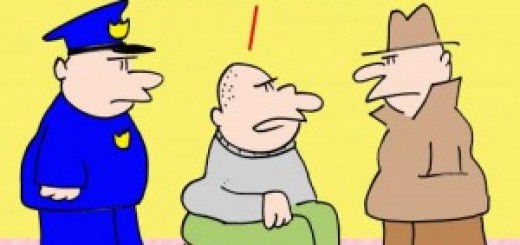





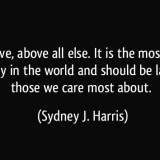



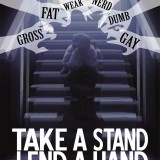
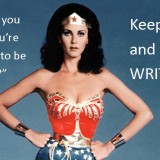


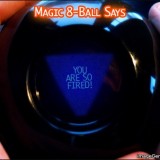








When you’re a freelance writer, how do you prevent editors from stealing your pitch ideas and giving them to a writer on staff? This has happened to me recently, and now I don’t even want to pitch anymore.
Hi Holly,
Thanks for the great question. I think this sort of thing does happen, although I’d like to believe it’s very rare. Sometimes it may appear that a story idea was stolen, but in reality, the magazine was already working on the same sort of article, since they work months in advance of publication (although if that were the case, I would hope they would have alerted you to that fact). I also think that writers tend to think of the same types of ideas for certain magazines.
A pitch is more than selling an idea. You are also selling you! One good suggestion is to write your query/proposal in a way that emphasizes what you bring to the story — your contacts (but generally not by name), your expertise, why YOU are the best one to write the story.
Unfortunately, you can’t copyright ideas. If you’re sure an editor has stolen your idea, you might consider taking them off your list of places to pitch.
But please don’t let this stop you!
Here are a couple differing viewpoints on this issue that might be helpful:
http://www.urbanmusewriter.com/2010/11/how-to-arm-yourself-against-idea-thieves.html
http://www.freelancewrite.about.com/od/legalissues/f/Steal.htm
Good luck!